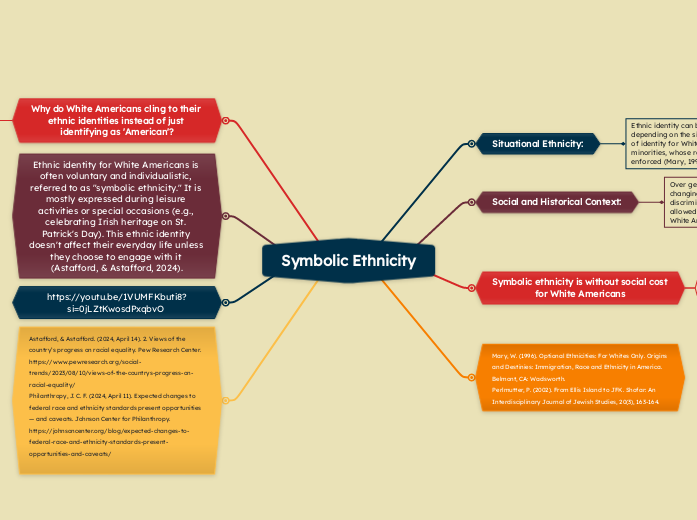par Joan Ndungwa Il y a 7 mois
92
Symbolic Ethnicity
In American society, the concept of symbolic ethnicity allows White Americans to selectively engage with their ethnic heritage in a manner that is largely voluntary and without significant social repercussions.









